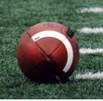
>> Student-Athletes focus on time issues
Long-time National Football League coach Buddy Ryan, who was especially respected for his defensive contributions recently passed away at the age of 84. Some of his early years were spent with the Buffalo Bulls football program, and the university quickly released a statement.
Brian Wolff, associate director Athletic Communications, wrote:
“Today we lost an icon, a legend and an innovator. Buddy Ryan was an outstanding ambassador for the University at Buffalo during his time as an assistant coach under Dick Offenhamer from 1961-65. We want to express our deepest condolences to the Ryan family and everyone affected by his passing.”
Student-Athletes focus on time issues
A Mid-American Conference Student-Athlete Advisory Committee, has completed work on a “white paper” addressing some of the time issues faced by student-athletes. The purpose was to provide a voice in the national debate on time demands. Problems, along with some potential solutions, were identified.
The MAC students made public their position in the hope that their concerns and potential solutions will be considered as a voice in the development of autonomous legislation and be involved in this discussion to provide a collective narrative from a student’s perspective.
The MAC SAAC White Paper was shared with the MAC governing committees during the recently completed MAC Spring Meetings (May 31-June 2). MAC presidents, directors of athletics, senior administrators and faculty athletic representatives all provided support and appreciation of MAC students taking a leadership role in this discussion with the hopes of continued national discussion for these potential solutions becoming adopted nationally.
Ultimately, MAC students aim for an accurate depiction of the time and energy dedicated to participate in intercollegiate athletics and to enhance each student’s experience athletically as well as academically during their collegiate career.
"Earlier this year I challenged our Student-Athlete Advisory Committee to take an active role in the discussion regarding time demands," stated Dr. Jon Steinbrecher, Mid-American Conference commissioner. “In response the students drafted the White Paper to bring a voice and a face to the many facets of this issue. I applaud their efforts and believe the White Paper will be beneficial as the national conversation on this matter continues. I look forward to addressing many of these topics during the upcoming NCAA Convention in January.
“While this is an autonomous legislative issues, I expect the Mid-American Conference, its students and administrators to take an active role in the debate as we work to address the well-being of the students who participate in intercollegiate athletics.”
The following is part of the “White Paper” observations and recommendations:
MAC-SAAC White Paper 11 potential solutions for time demands discussion:
1. Review Countable Athletically Related Activities (CARA) legislation in order to establish sport-by sport specific regulations.
Solution: Sport specific time demands may help alleviate the pressure of extra ‘voluntary’ film sessions, individual workouts and other necessary tasks beyond the regulated CARA hours. These regulations would allow for each sport to manage the amount of CARA hours necessary for that sport.
2. Establish CARA regulations specific to different athletics related activities, include those hours that are spent on athletics obligations outside of practice and lifting/conditioning.
Solution: Hours dedicated to travel, study tables, rehabilitation workouts, community service projects, team dinners and team leadership building activities are not tracked under current NCAA legislation as part of current student’s time demands. These extra hours need a weekly hour limit.
3. Increase the CARA limit regulations currently in place to a true representation of time spent on athletics obligations. Within this increase, regulate the number of hours in physical activity and those spent in other areas, but maintain overall limits.
Solution: Recommend new time limit regulation to be 24-28 hours in-season and 10-12 hours out-of-season, along with a distinction between physically demanding hours and other mandatory hours.
Need for a Period of Time Off Solutions:
4. Establish a two-week time off period from required athletics activity following the end of a championship season segment.
5. Regulate that once in a student’s collegiate athletics career, between initial enrollment and graduation, one off-season semester/summer vacation period is mandated as an off period. This will allow student-athletes the opportunity to gain a study-abroad experience, internship, or job opportunity.
6. Allow those student-athletes in-season during the winter, the ability to travel home over the holidays if no competitions are scheduled.
7. Require student-athletes that are out-of-season to have a week off with no athletics obligations at the beginning of each semester.
Eliminated the ‘Voluntary’ Designation of a workout
8. Recognize the “voluntold” culture, that nothing is voluntary, and require time “off” to be completely off and away from athletics.
Properly Define Off-Day For Students Who Participate In Athletics
9. Do not count travel days as days off.
10. Prohibit athletics obligations between away-from-home travel and practice for at least 10-12 hours following the return to campus.
11. Require practice schedules be shared with student-athletes weekly and followed by coaching staffs, and, if changes are required, they must be known by student-athletes 24 hours prior to the scheduled practice time.


 RSS Feed
RSS Feed